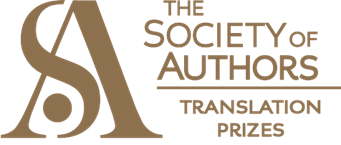The Saif Ghobash Banipal Prize for Arabic Literary Translation
About The Prize
Twenty years of awarding English translations of contemporary Arabic literature: this is what we are celebrating with the 2025 Saif Ghobash Banipal Prize. Literary translation from Arabic every year since 2006, with the 2013 and 2022 prizes both awarding joint winners.
The prize is an annual award of £3,000, made to the translator(s) of a published translation in English of a full-length imaginative and creative Arabic work of literary merit published after, or during, the year 1967 and first published in English translation in the year prior to the award. It was the first prize in the world for a published translation from Arabic to English. The 2025 prize is the twentieth year of the judging panels reading the entries, discussing and selecting the winners. Over this time 72 judges have joined the panels, and selected 55 works, between 2006 and 2024) as commended, runner-up, and shortlisted. Then, with the winner announcement forthcoming on 7 January 2026, twenty-two winners (there were joint winners in 2013 and 2022). The 2025 prize will also announce a runner-up from the shortlist, in addition to the winner. The runner-up will receive an award of £1,000.00
The 2025 prize is the twentieth year of raising the profile of contemporary Arabic literature by honouring the skill of individual translators in bringing the published work of established and emerging Arab writers to the attention of the wider world. The prize was established by Banipal, the magazine of modern Arab literature in English translation, and the Banipal Trust for Arab Literature. The inaugural prize was awarded on 9 October 2006 to the late Humphrey Davies for Gate of the Sun by the late Elias Khoury.
The prize is administered by the Society of Authors in the United Kingdom, alongside all other UK prizes for literary translation from languages that include Dutch, French, German, Greek, Hebrew, Italian, Japanese, Portuguese, Spanish and Swedish, also the TA First Translation Prize for debut translation into English from any language, and the newly established John Calder Translation Prize for a full-length ambitious, groundbreaking work of literary merit and general interest translated into English from any language. All are administered by the Society of Authors and awarded annually at a joint ceremony hosted by the Society.
Most of the 17 entries to the 2025 prize can be purchased from Bookshop.org
* * *
When the prize first started, the original cut-off point for the original Arabic publication was 35 years. As the years went by and as interest in literature from the Arab world increased since the establishment of the prize in 2005, in 2013 the Trust became concerned that the cut-off point would prevent translations of important authors being entered for the only prize in the world for published Arabic literary translation.
After much discussion the Trustees decided to extend the original Arabic publication date to after, or during, the year 1967, widely recognised as a "watershed" year for Arabic literature. "The date of 1967 . . . one of those historical watersheds that not only divide one historical period from another but also call radically into question the very principles by which literary historical periods and thereby the relationships between present and past, are established in the first place" – Roger Allen, in Intertextuality in Modern Arabic Literature since 1967. The change in entry requirements started from the 2014 prize.
In 2017 it was decided to introduce a shortlist instead of having "commended", "highly commended" or "runner-up". It is announced on 1 December each year.
Entries for the prize can be submitted only between 1 January and 31 March each year. The publication dates of entries must be between 1 April of the previous prize year and 31 March of the current prize year. For full rules and conditions click here.
* * *
The Society of Authors is the administrator of the prize. Founded in 1884 "to protect the rights and further the interests of authors", it has over 7,500 members. Its first president was Alfred Lord Tennyson. Among its members have been many prominent writers, including George Bernard Shaw, John Galsworthy, Thomas Hardy, H G Wells, J M Barrie, John Masefield, E M Forster, A P Herbert, and countless contemporary writers.
The other literary translation prizes administered by the Society in addition to the Saif Ghobash Banipal Prize are:
- John Florio Prize for Italian Translation (biennial)
- Goethe-Institut Award (biennial)
- Schlegel-Tieck Prize for German Translation (annual)
- Scott Moncrieff Prize for French Translation (annual)
- Bernard Shaw Prize for Swedish Translation (triennial)
- Premio Valle Inclán for Spanish Translation (annual)
- The TA (Translators Association) First Translation Prize from any language (annual)
- The TLS-Risa Domb/Porjes Prize for Hebrew Translation (triennial)
- Vondel Prize for Dutch Translation (biennial)
- Great Britain Sasakawa Foundation Translation Prize (Japanese, started in 2023)
- The John Calder Translation Prize from any language (starting in 2025)













